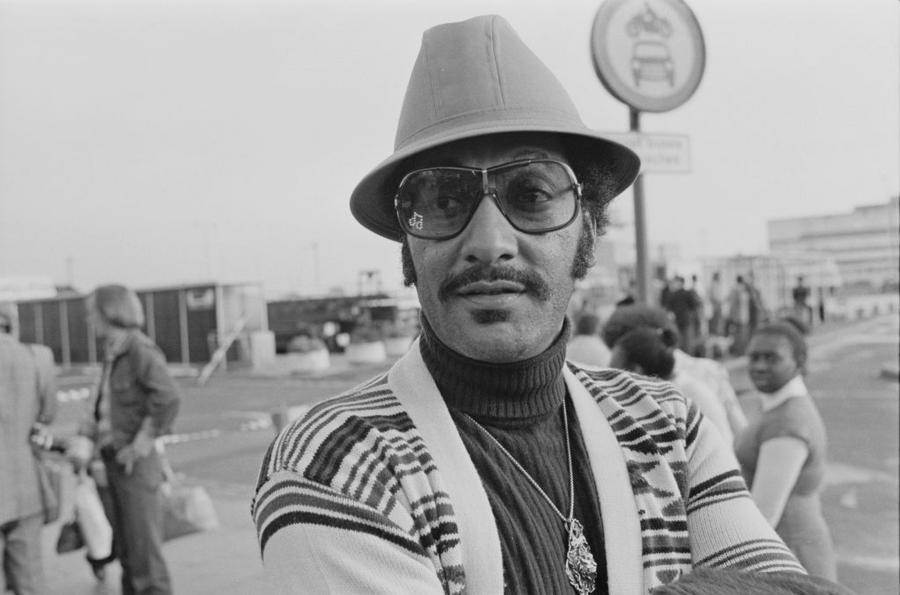What was Duke Fakir’s Net Worth?
Duke Fakir was an American singer who had a net worth of $3 million at the time of his death. Also known as Abdul Duke Fakir, he was best known as one of the original members of the Motown vocal quartet the Four Tops. One of the most commercially successful musical acts of the 1960s, they recorded such hit singles as “I Can’t Help Myself (Sugar Pie Honey Bunch),” “It’s the Same Old Song,” “Reach Out I’ll Be There,” and “Bernadette.” The last surviving original member of the Four Tops, Fakir passed away in the summer of 2024 two days after announcing his retirement.
Early Life and Education
Duke Fakir was born as Abdul Fakir on December 26, 1935 in Detroit, Michigan to an African-American mother from Georgia and a father who hailed from what is now Bangladesh. He was educated at Pershing High School, where he played football and basketball and ran track.
The Four Tops
As a high school student in the early 1950s, Fakir formed the vocal quartet the Four Aims with fellow high school students Levi Stubbs, Lawrence Payton, and Renaldo Benson. The group went on to sign with Chess Records in 1956, at which time they renamed themselves the Four Tops. Following an unsuccessful tenure at Chess, the group did stints for such labels as Riverside Records and Columbia Records; however, they still failed to produce any hits. The Four Tops finally had their big break after signing with the newly established Motown Records in 1963. They proceeded to have their first hit single, “Baby I Need Your Loving,” in 1964. The song was written and produced by Motown’s songwriting and production team Holland-Dozier-Holland, which would continue to produce many hits for the group over the subsequent years. In 1965, the Four Tops had their biggest hit yet with the single “I Can’t Help Myself (Sugar Pie Honey Bunch).” They had a number of other successful singles that year, including “Ask the Lonely,” “It’s the Same Old Song,” and “Something About You.” The Four Tops had their all-time biggest hit single in 1966: “Reach Out I’ll Be There.” Further hits came with “Standing in the Shadows of Love,” “Bernadette,” “You Keep Running Away,” and a cover of the Left Banke’s “Walk Away Renée.”
(Photo by Evening Standard/Getty Images/Hulton Archive)
After Holland-Dozier-Holland left Motown in 1967, the Four Tops had fewer major commercial hits. They had their biggest success in a while with their 1970 cover of “It’s All in the Game,” which was produced by Frank Wilson. The same year, the Four Tops scored a hit with the single “Still Water (Love),” written by Wilson and Smokey Robinson. They also released their first of three collaborative albums with fellow Motown act the Supremes, entitled “The Magnificent 7.” After leaving Motown in 1972, the Four Tops signed to ABC-Dunhill and had such successful singles as “Keeper of the Castle,” “Ain’t No Woman (Like the One I’ve Got),” and “Are You Man Enough.” The group continued to record for ABC throughout the 1970s, although to declining success. In the early 1980s, the Four Tops signed to Casablanca Records and scored their biggest hit single in a while with “When She Was My Girl.” The group returned to Motown a couple of years later, and then did a stint with Arista Records in the late 1980s. Starting in the 1990s, the Four Tops focused mainly on touring and live performances; they released their final studio album, “Christmas Here with You,” in 1995. In 1997, Lawrence Payton passed away, leaving the Four Tops as a trio for the first time. The group became a quartet again after adding former Temptations member Theo Peoples in 1998. By 2008, Fakir was the only surviving original member of the group.
Memoir
Fakir published his memoir, “I’ll Be There: My Life with the Four Tops,” in 2022. A musical based on the book premiered that same year in Detroit.
Personal Life and Death
Fakir was married twice, and had seven children. He was also engaged briefly to the Supremes’ Mary Wilson.
On July 22, 2024, two days after announcing his retirement, Fakir passed away from heart failure at his home in Detroit. He was 88 years of age.
All net worths are calculated using data drawn from public sources. When provided, we also incorporate private tips and feedback received from the celebrities or their representatives. While we work diligently to ensure that our numbers are as accurate as possible, unless otherwise indicated they are only estimates. We welcome all corrections and feedback using the button below.

